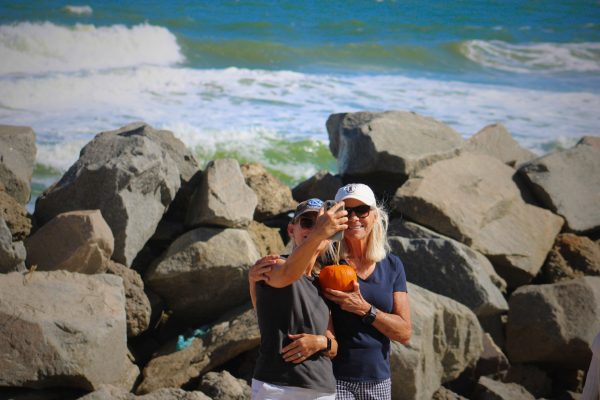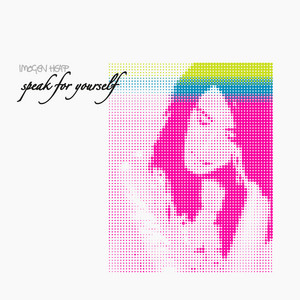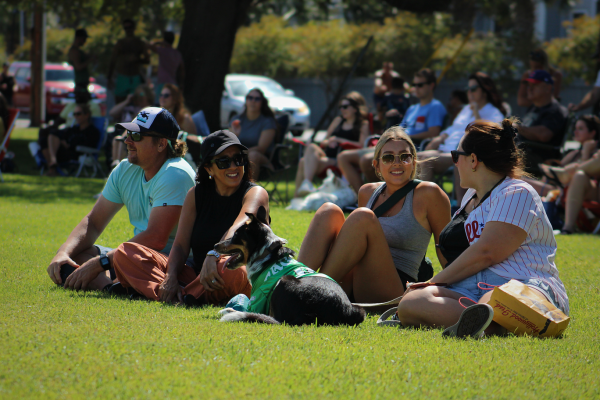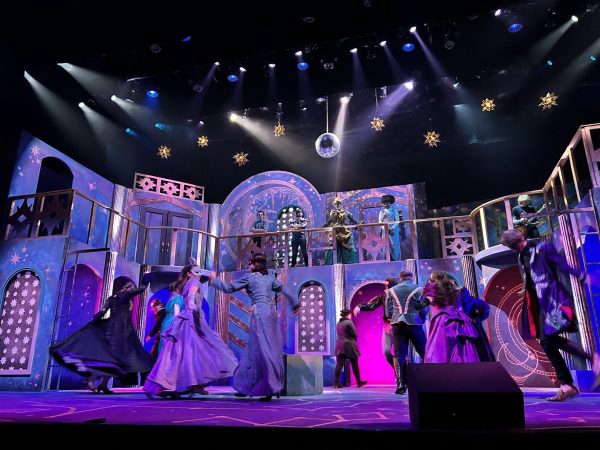Healing Generational Trauma conference unites Wilmington community and the arts
The Healing Generational Trauma: A Community Arts Experience conference held on Saturday, April 17, focused on the trauma Black Americans face over multiple generations and the use of art as means of expressing this trauma. The conference was created under the Artivism For Social Change initiative fostered by the Office of the Arts and is available to view on the Arts at UNCW website.
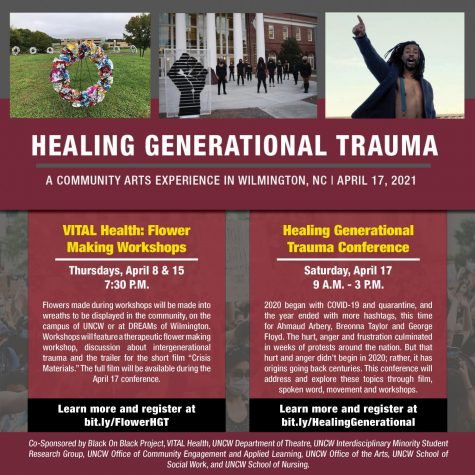
The conference partnered with the Black on Black Project, the UNCW department of theatre, the CHHS Interdisciplinary Minority Student Research Group, the Office of Community Engagement and Applied Learning, the School of Social Work, School of Nursing and VITAL Health.
The conference was hosted by Dr. Josalin Hunter-Jones of the School of Social Work and Dr. Anka Roberto of the School of Nursing and the two spoke about their desire to fully engage with the community.
“When you have a community of helpers who can walk alongside one another to help overcome the many adversities caused by systematic racism, you just know the end result will bring some semblance of unity and healing,” said Hunter-Jones.
The conference featured the short film “The Front Lines” with poetry by Johnny Lee Chapman III and choreography by Anthony Otto Nelson Jr. The film focuses on events in the history of Wilmington that contribute to the modern income inequality and treatment of people of color in the city. It addresses the Civil War’s Battle of Forks Road in 1865, the Wilmington massacre of 1898 and the Wilmington Ten case in 1971. “We have already done the work that history requires, but history repeats,” said Chapman while speaking about how these events have repeated themselves in different forms over time. The trailer for “The Front Lines” is available to view on the Black on Black Project website.
“The writing of the piece stems from the research I had been doing.But when you go there with this new information, I feel almost tapped into something. I feel like when I step into here there is something more. Maybe it is just because my perspective has changed and I have context behind what I am seeing,” said Chapman.
The conference allowed participants to process the subject matter of the film through a choice of breakout rooms with featured artists. Zelda Lockhart led a creative writing workshop, Anthony Tombs Sr. led a playwriting workshop and LaRaisha Dionne and Hannah Kol taught forms of healing through movement and music, including forms of meditation.
The UNCW theatre department students performed sections from their November production, “Am I Next? Voices from Wilmington, NC.” The original production featured pieces written by some students about their experience as Black Americans and included reenacted verbatim from members’ interviews with Wilmington’s citizens.
One of the students, sophomore Addison Hamlet presented a poem entitled “Black Lives Matter Too.” She wrote the piece at age 15 and feels it is a piece that she has grown with over time.
The poem was written after the shooting of Alton Sterling in 2016, by two police officers in Baton Rouge, Louisiana and the shooting of Philando Castile a day later, by police officer Jeronimo Yanez in Minneapolis, Minnesota.
In 2021, five years after the deaths of Sterling and Castile, the poem still felt timely.
“Nothing had changed. Not a thing. All of the words were still applicable,” said Hamlet.
Hamlet wants people to understand that they have to be involved to make change.
“You have to consciously and continuously be an advocate and an ally because if you do it passively, you are not really helping anyone,” stated Hamlet.
During the conference, the works created by student artists Jacobi Loyd and J.T. Smith were presented. The students were mentored by community artists Chapman and Nelson, under the Arts Equity Fellowship program. Their poetry focused on the beauty of Black culture and their unique identities within their artistic expression.
Chapman characterizes his role as that of a facilitator.
“[Loyd and Smith] already knew what they wanted to do and let’s just figure out how we can package and present [their art] in this way that can help with their artists’ journey in the long-term,” said Chapman.
“I’m so glad I got to be a part of bringing [them] and the spotlight together,” stated ChapmanAnother film “Crisis Materials” was presented during the conference. The short film features poetry from Chapman and choreography from Nelson. The film focuses on mental health and connects to prior events sponsored by the Artivism for Social Change series.
For five weeks leading up to the conference, virtual flower-making workshops were held by VITAL Health, a community-focused organization created by Stacey L. Kirby and Michael S. Williams, which focuses on mental health during the COVID-19 pandemic. The flowers made by students in the workshops are from mylar, the silver-colored material used to make blankets given to people in emergency situations.
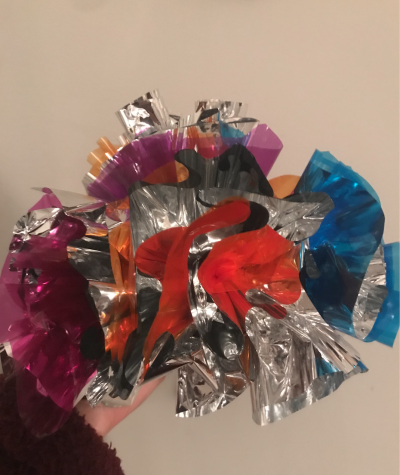
In the film, the men wear masks made from this mylar material and move through Dorothea Dix Park in Raleigh. The Dix cemetery contains the graves of over 950 patients with mental illnesses from the Dorothea Dix Mental Hospital. The project seeks to raise awareness for the park’s past while addressing mental health during our current time.
“There are so many layers to COVID-19. The reason there is disproportionate aspects of health care is because it stems back to history and when we talk about how mental health is going to be impacted by COVID-19 well then, let’s talk about how mental health was treated in the past,” said Chapman. The trailer for “Crisis Materials” is available to view on the VITAL Health website. There will be a live performance of the short film in Dorothea Dix Park in Raleigh on May 22.



